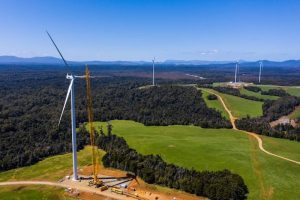Late last month, the former head of the federal government’s $4.5 billion carbon credits Emissions Reduction Fund claimed that most of the money under the scheme, upon which companies relied to reduce their carbon footprint, was being spent on fake carbon reductions.
Now the whistle has been blown on the scheme, companies need to assess whether their own emissions reductions schemes are “green washing.”
According to Professor Andrew Macintosh, not only did most of the approved carbon credits not represent real or new cuts in greenhouse gas emissions, the scheme was actually hurting the environment by allowing corporations to purchase carbon credits instead of cutting emissions.
Relying on carbon credits to offset carbon emissions has often been criticised as a way for companies to demonstrate their “green credentials” without having to make meaningful changes to their operating models.
This has been brought to light by the new claims made by Professor Macintosh, which should present a warning for Australian businesses.
Companies can no longer rely on ‘short cuts’ like carbon credits and offsets to meet their sustainability targets. The silver lining is that the technology and energy alternatives now exist to make real emissions reductions not only achievable in nearly all industries, but also profitable.
There are resources available to assist companies to develop implementable net-zero plans. The first 30-50% of these reductions are typically NPV positive, and can and should be implemented rapidly for that reason.
Within a few more years the next tranche of improvements should also be economic and can then be pursued. In addition, most can be financed with lower cost green financing.
One example of this in action includes a recent project where Partners in Performance worked with a major single commodity global mining company to identify a path to rapidly reduce their emissions by 60% and then reach net zero by 2040.
This was achieved by identifying opportunities to move to renewable electricity, replacing the fleet with lower emission technologies, assessing current business processes, and providing recommendations to increase governance for emission management.
While many businesses may have bought into carbon credits in good faith, it’s time to question the impact of these programs. Leaders must avoid thinking ‘what is the easiest way to comply with regulations or look good on annual reports?’, and instead ask ‘what is the long-term solution to this problem?’.
Carbon credits should only be a stop-gap to help businesses address emissions while they move toward full decarbonisation. They will find that the root-cause solution also saves costs and in many cases can also create new revenue streams.
If companies are going down the offset route for those residual emissions, considerable expertise is needed to identify genuine offsets. When building an offsets portfolio, we help our clients identify and create offsets which also hold significant local and community benefits and are often significantly cheaper than those available off the shelf.
This can be a road full of traps for those new to the space but there can be significant triple bottom line impacts from doing this well.
What, then, is the true lesson to be learned from Australia’s ‘green washing’ controversy? There is a danger that by clinging to the interpretation offered recently by whistleblowers (that the carbon credit system is flawed because companies are exploiting its loopholes), we may miss the true lesson behind the headlines.
The critical lesson from these events is not that our current system has loopholes, but that Australian companies stand at the threshold of an unprecedented strategic opportunity in the choices they make about decarbonisation.
Company leaders who embrace the imperative of substantial, strategic decarbonisation – say, 50% emission reductions or more by 2030, along with credible plans to achieve net zero soon thereafter – stand to unlock value for customers, reduce costs, attract cheaper capital, retain talent, and gain competitive advantage.
Companies that delay decarbonisation action, or ‘green wash’ their way to better near-term public relations, will fall behind the curve and incur operating disadvantages that become increasingly difficult to mitigate.
Given our natural resources when it comes to solar and hydrogen, Australia has the opportunity to become a global leader in the energy transition space.
But first this requires a deliberate choice by leaders of Australian companies: to do the hard yards and take the straight road directly to comprehensive decarbonisation of company operations.
This, of course, requires saying no to tempting shortcuts that delay, avoid, or ’green wash‘ away the need for positive action and hard work necessary to stay the course.
Skipp Williamson is managing director of Partners in Performance










